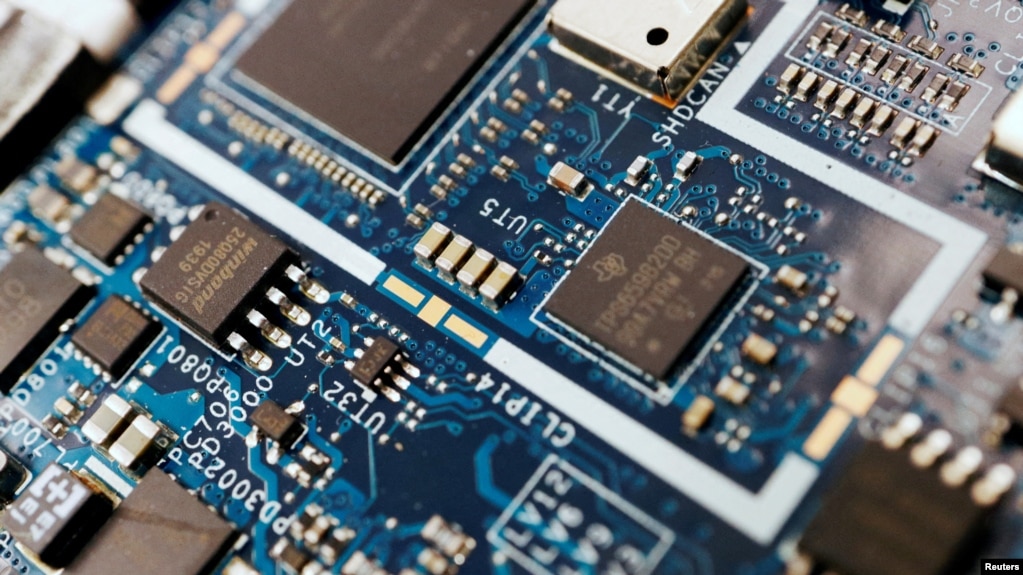Chinese Chipmaking Company Avoids US Restrictions

The White House announced an executive order last August targeting U.S. investment in advanced Chinese chipmaking and other technology industries.
The move was a result of fears that American money and knowledge could end up helping China strengthen its military. But a recent Reuters report shows the difficulty of enforcing the rules.
Brite Semiconductor
The Reuters report found that Brite Semiconductor, a Chinese chip designer, is purchasing U.S. software and has American financial backing.
Chief executive Zhuang Zhiqing is Brite Semiconductor’s largest shareholder. The company offers chip design services to at least six Chinese military suppliers. That information comes from a Reuters examination of company statements, legal filings, and writings by People's Liberation Army (PLA) researchers and organizations.
Brite’s second-largest shareholder and top supplier is chipmaker SMIC. The Shanghai-based chipmaker SMIC was placed on the U.S. list of companies and organizations with possible connections to the Chinese military. The list bars SMIC from receiving some goods from U.S. suppliers.
The American financial company Norwest Venture Partners is the third largest shareholder in Brite. Norwest is backed by Wells Fargo, one of the largest banks in the U.S., and Biola University, a Christian college in California.
Norwest said its early investment in Brite was made 15 years ago and followed “applicable laws.” The company added, “we’re committed to following new regulations as they become effective.” Biola did not comment on its investment in Brite.
The semiconductor company also has the use of important U.S. technology from two California-based software companies, Synopsys and Cadence Design. Still, Reuters has not found any evidence that Brite's relationships with U.S. companies violate any laws.
Difficulties
The Biden administration has taken strong steps to stop the movement of technology and investment to China's chip industry.
In August, the administration announced a ban on certain new U.S. investments in the industry. It has also added over twenty Chinese companies to the restricted list, many over ties to China's military. Last October, it announced more rules to stop some U.S. exports of chips and chipmaking tools to China.
Brite did not answer Reuters’ requests for comment. The U.S. Commerce Department and the White House did not comment.
The Chinese Embassy in Washington did not comment on Brite but accused the U.S. of "economic coercion and bullying in the field of technology."
Although Brite has not broken U.S. rules, its ability to get U.S. technology is an example of the difficulties facing efforts to keep U.S. equipment and money from being used to help China's military. The example of Brite also suggests the U.S. will struggle to succeed unless it targets many more companies.
Republican Senator Marco Rubio is a member of the Senate’s foreign relations committee. He described the Reuters findings about Brite as "concerning."
Rubio said, "Companies connected to China’s military supply chain should not have access to American technology and investment.” He added that the Biden administration's policy of "export controls and investment restrictions clearly is not working.”
Others said Brite is an example of China’s ability to use little-known companies to get around U.S. export bans on big-name Chinese companies.
Martijn Rasser is a director of Datenna, an open-source intelligence company based in the Netherlands. He said Brite is an example of how a U.S.-China joint operation could help send “valuable semiconductor technology to SMIC and the PLA.”
China's defense ministry and SMIC did not respond to questions about their relationships with Brite.
_______________________________________________
Words in This Story
advanced – adj. having or using new and modern methods
regulation n. an official rule or law
semiconductor – n. an object that allows some electricity to move through it and that is used especially in electronic devices
coercion – n. the act of getting (something) by using force or threats
bully v. to frighten, hurt, or threaten a smaller or weaker person
https://learningenglish.voanews.com/a/chinese-chipmaking-company-avoids-us-restrictions/7398407.html